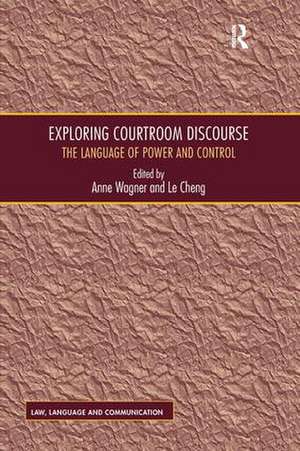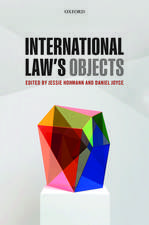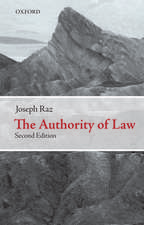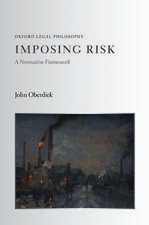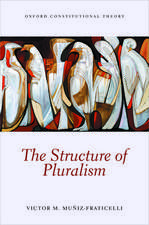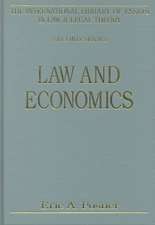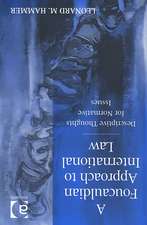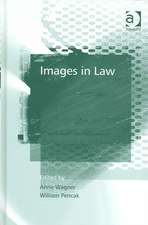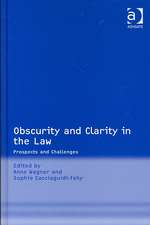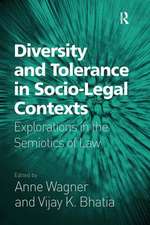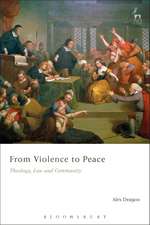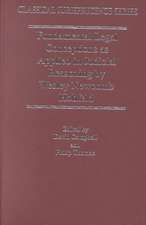Exploring Courtroom Discourse: The Language of Power and Control
Autor Le Cheng Editat de Anne Wagneren Limba Engleză Hardback – 13 iul 2011
| Toate formatele și edițiile | Preț | Express |
|---|---|---|
| Paperback (1) | 324.16 lei 6-8 săpt. | |
| Taylor & Francis – 11 noi 2016 | 324.16 lei 6-8 săpt. | |
| Hardback (1) | 823.91 lei 6-8 săpt. | |
| Taylor & Francis – 13 iul 2011 | 823.91 lei 6-8 săpt. |
Preț: 823.91 lei
Preț vechi: 1105.11 lei
-25% Nou
Puncte Express: 1236
Preț estimativ în valută:
157.65€ • 164.60$ • 130.48£
157.65€ • 164.60$ • 130.48£
Carte tipărită la comandă
Livrare economică 05-19 aprilie
Preluare comenzi: 021 569.72.76
Specificații
ISBN-13: 9781409423478
ISBN-10: 1409423476
Pagini: 286
Dimensiuni: 156 x 234 x 30 mm
Greutate: 0.68 kg
Ediția:New.
Editura: Taylor & Francis
Colecția Routledge
Locul publicării:Oxford, United Kingdom
ISBN-10: 1409423476
Pagini: 286
Dimensiuni: 156 x 234 x 30 mm
Greutate: 0.68 kg
Ediția:New.
Editura: Taylor & Francis
Colecția Routledge
Locul publicării:Oxford, United Kingdom
Notă biografică
Anne Wagner, is an Associate Professor in Applied Linguistics., Université du Littoral Côte d'Opale, France, and Research Professor, China University of Political Science and Law (Beijing, China). Since 2005 she has been President of the International Roundtables for the Semiotics of Law (IRSL). She is the founder of the website: http://www.semioticsoflaw.com; a founding Member of International Law and Language Association and a Permanent Member of the Scientific Committee of the Instituto Subalpino per l'analisi e l'insegnamento del diritto della attività transanzionali - ISAIDAT. She has published extensively on issues relating to law and language. Le Cheng is currently Professor and Director of the Center for Legal Discourse and Translation, Zhejiang University. He holds a concurrent professorship at China University of Political Science and Law (CUPL). He is Chief Editor of the International Journal of Law, Language & Discourse, co-editor of the Translated Series on Law and Language (CUPL Press), Secretary General and Vice President of the Multicultural Association of Law and Language, Deputy Director of the Research Centre for Legal Translation, CUPL, and Councillor of the China Behaviour Law Association. His interests and publications are in the areas of law, legal translation, semiotics, language and law, and discourse analysis.
Recenzii
'This important collection explores the ways that law, language and power interact in courtrooms around the world. It will remain an important contribution to the study of law and culture for a long time, both because of the quality of the individual chapters, and because, taken as a whole, the book provides a compelling narrative of the courtroom as a forum for reinforcing control across many legal cultures.' Lawrence M. Solan, Brooklyn Law School, USA 'Through the lenses of a variety of theories and approaches, including discourse analysis, pragmatics, semantics, semiotics, and sociolinguistics, this volume examines some of the many ways in which language functions as a tool for exercising power and control in legal settings.' Peter Tiersma, Loyola Law School, USA 'The appeal of the book lies in the actionable knowledge it brings to this emerging field of research and practice as it contains contributions from internationally recognized scholars from a range of continents, including Asia, North America, Europe and Oceania. Integrating practical and theoretical reflections, this volume provides an updated profile for the trend and evolution in interdisciplinary studies between law, language and discourse, which is valuable not only for the professionals and academics in the fields of law and forensic linguistics, but also for those in the field of discourse studies.' Discourse Studies 'The book encourages a critical understanding of how law and language exhorts power and control in courtrooms across diverse cultures. It is thus likely to appeal to students and researchers engaged in interdisciplinary work, in particular in the fields of law, legal theory, (legal) interpretation and the semiotics of law.' International Journal for the Semiotics of Law
Cuprins
Chapter 1 Language, Power and Control in Courtroom Discourse, Anne Wagner, Le Cheng; Part 1 Power and Control in Language; Chapter 2 Understanding Courtroom Communication through Cultural Scripts, Kim McCaul; Chapter 3 Witnesses on Trial, Sarah Dettenwanger; Chapter 4 (False) Confessions Become Compelling at Trial, Gillian Grebler; Chapter 5 The Role of Metadiscourse in Counsels’ Questions, Silvia Cavalieri; Chapter 6 Constructing Legal Narratives, Flora Di Donato; Part 2 Power and Control behind Language; Chapter 7 Magical Images in Law, Christine A. Coreos; Chapter 8 The Construction of Admissions of Fault through American Rules of Evidence, Janet Ainsworth; Chapter 9 The Construction of Truth in Legal Decision-making, Petrina Schiavi; Chapter 10 Hidden Penalties Faced by Non-English Speakers in the UK Criminal Justice System, Roxana Rycroft; Chapter 11 Language Alternation in Kenyan and Malaysian Courts, Richard Powell, Maya Khemlani David; Chapter 12 The Place of Arbitration in Online Proceedings as a Simulacrum, Joanna Jemielniak;
Descriere
This volume presents a combination of practical, empirical research data and theoretical reflection to provide a comparative view of language and discourse in the courtroom. The work explores how the various disciplines of law and linguistics can help us understand the nature of "Power and Control" - both oral and written - and how it might be clarified to unravel linguistic representation of legal reality. It presents and examines the most recent research and theories at national and international level.
